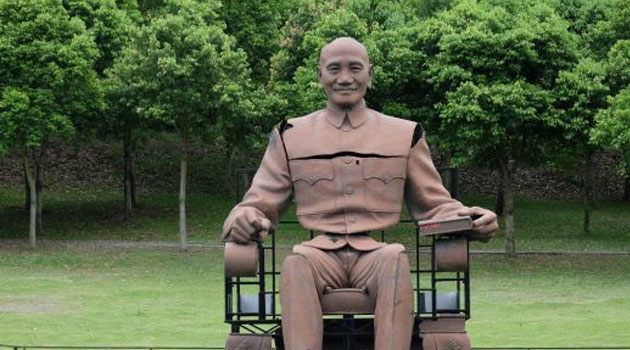
His role in Taiwan’s “White Terror” – a purge of political opponents – and his imposition of martial law have led many to brand him a dictator synonymous with the authoritarianism that wary Taiwanese now equate with mainland rule/AFP-File
Though still seen as a hero by some in Taiwan for waging war against communist China under the banner of the nationalist Kuomintang (KMT), Chiang has long been a divisive figure.
His role in Taiwan’s “White Terror” – a purge of political opponents – and his imposition of martial law have led many to brand him a dictator synonymous with the authoritarianism that wary Taiwanese now equate with mainland rule.
Despite splitting after a civil war, China considers the island as a part of its territory awaiting reunification, by force if necessary. Fears over increased Chinese influence have grown since 2008 under President Ma Ying-jeou’s KMT government, which has forged a rapprochement with Beijing.
Chiang’s authoritarianism has outweighed his Nationalist credentials and his image is wrapped up in that concern, with young people in particular feeling strongly that his memory should not be celebrated.
“Chiang was a dictator. For a long time, freedom of speech in Taiwan was suppressed,” said Peter Chu, 23, a graduate student at National Taiwan University of Science and Technology.
“Why should his statues be allowed to remain on any campus?”
“There have been calls for removing the statue (at my school), but the school authorities have done nothing about it,” says student activist Chu Chen, 18, who attends the prestigious Taipei Municipal Jianguo High School.
“Every year, graduates decorate the statue mocking it.”
Students most recently decked it out the figure in an E.T. costume, with a helmet and wings.
The animosity is not all about avenging the past.
Chu is part of a campaign against what protesters call “China-centric” changes to the school curriculum by the ruling Beijing-friendly KMT government.
He says youngsters’ anti-Chiang sentiment stems from the same drive: to take control of their own destinies.
“Chiang Kai-shek was a symbol of Taiwan’s past authoritarian rule. So is the new curriculum, which has forced us into obeying something we think is not right. The objection shares the same reason,” he told AFP.
Students last week stormed the education ministry compound after a young activist committed suicide.
Some remain camped out there, demanding the retraction of the curriculum changes and the resignation of the education minister.










































